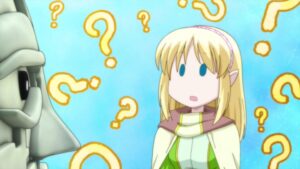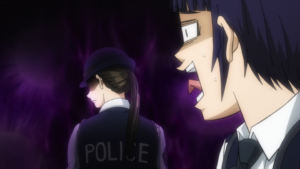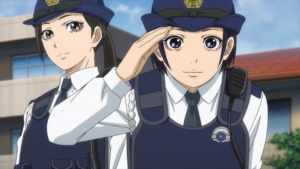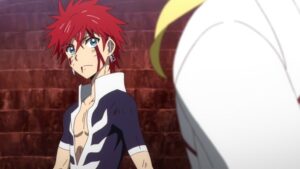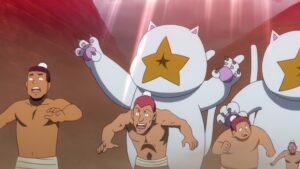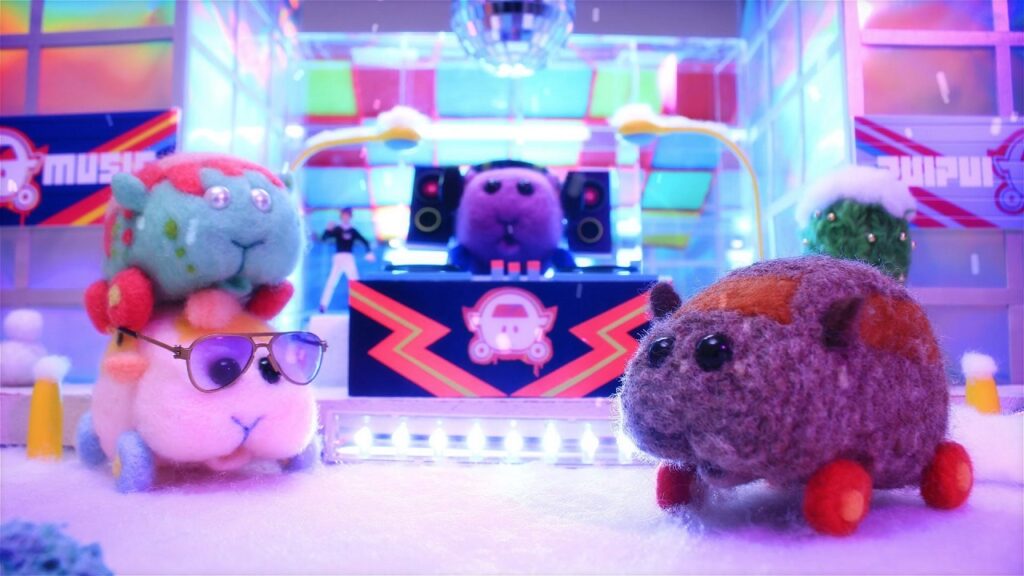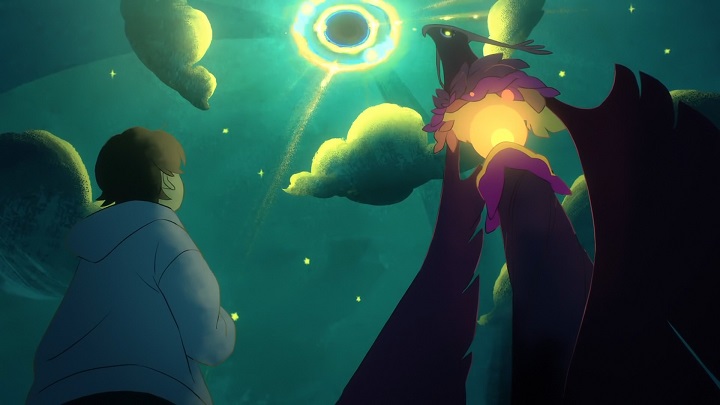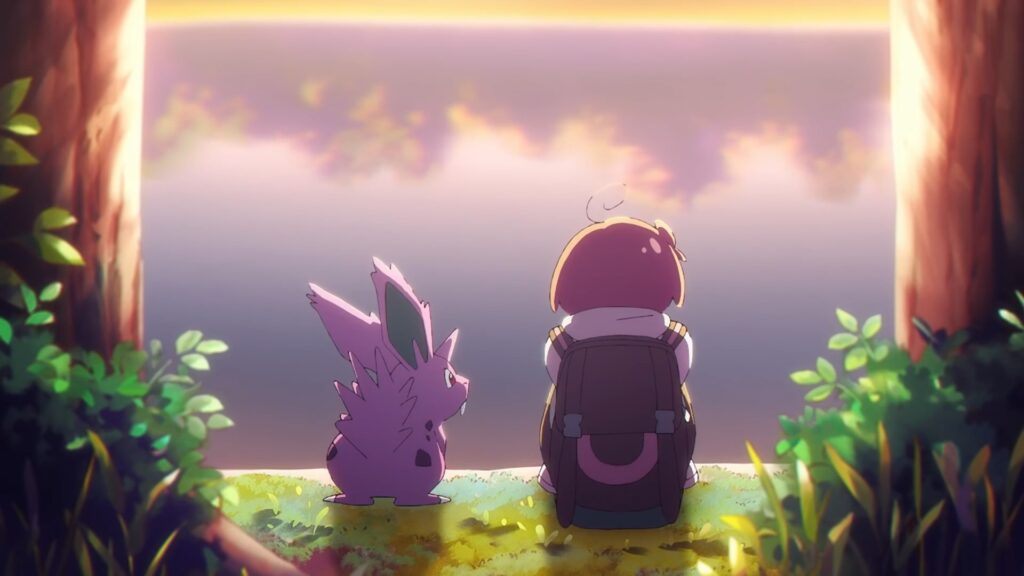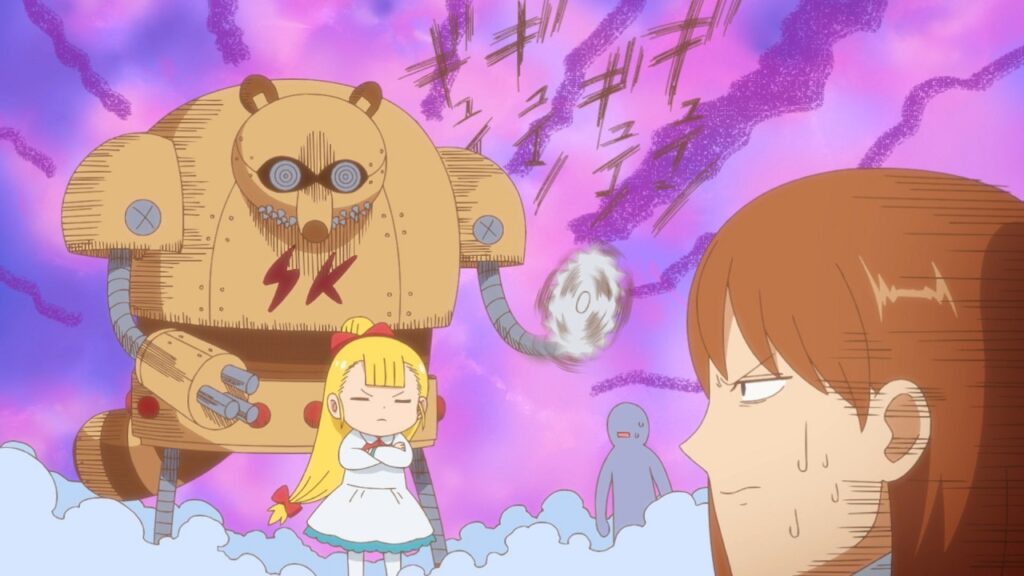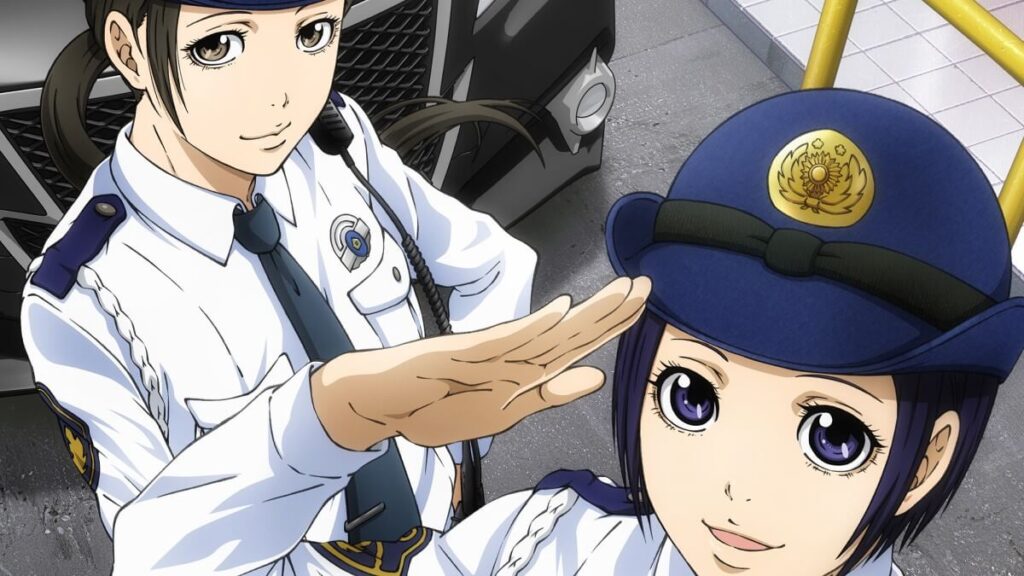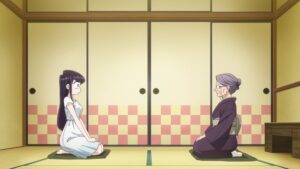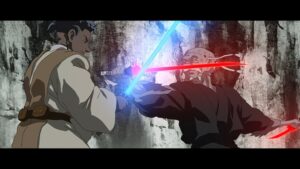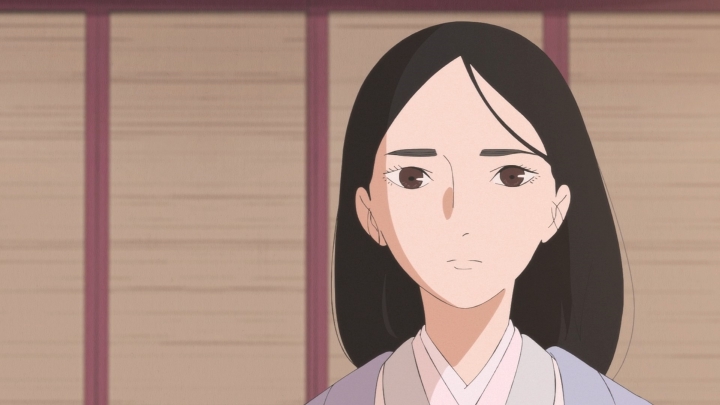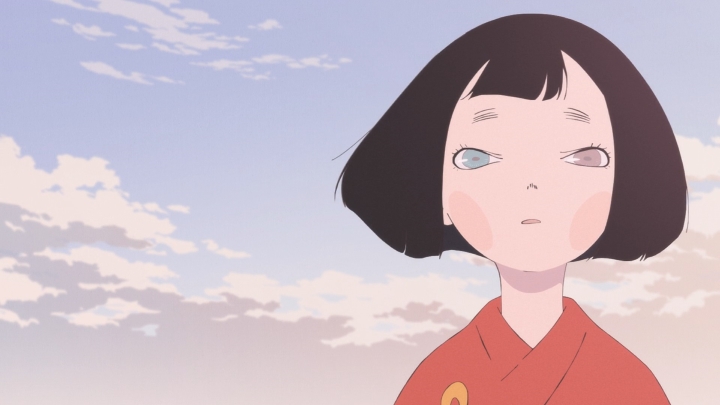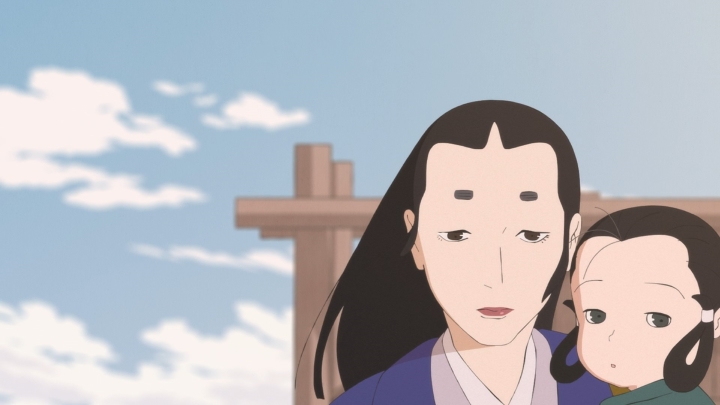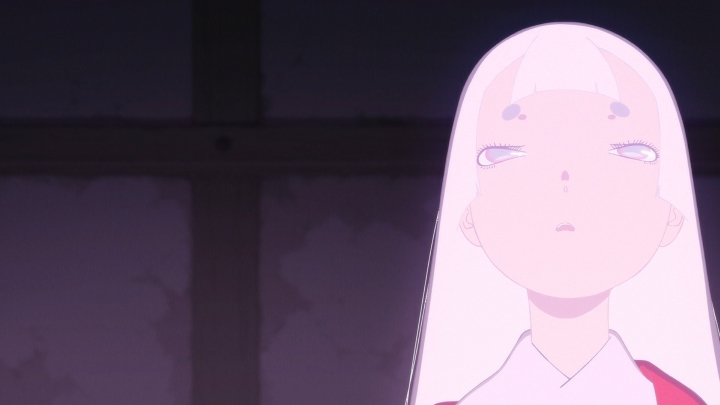Leadale no Daichi nite
Short Synopsis: Bedridden gamer becomes her in-game character 200 years in the future after a hospital fails to install back-up power for her life support (but provided her with a full VR gaming rig?).
Lenlo: New year, new season. New year, new season. And the first show of the new year is… Not objectively terrible. I’ll take it! As far as Isekai go, Leadale isn’t the worst. It’s still pretty basic, it’s still a power fantasy and it still uses a lot of the MMO trappings you’ve seen from Log Horizon and SAO. On top of that, Leadale also looks… kinda bad. Its animation is almost nonexistent, the CGI is jank and it shifts between this chibi art style and your more standard A-1 Pictures knockoff style a lot. But you know what? It doesn’t take itself seriously, this isn’t your super edgy whatever the fuck Isekai. It’s just a feel good, don’t think, watch the previously hospital bound girl finally get to experience life kind of show. And sometimes that’s all a person needs. Not me, I won’t be watching it, but I wouldn’t blame someone else for doing so.
Potential: 30%
Amun: I am that someone else! This show is right up my alley, despite some of the mentioned quality concerns. There are a few shortcuts here and there, but the characters are charming enough, the world looks decent, and the MMORPG aspect isn’t overbearing. I’d say this fits into the “big sister-little sister” genre (think Slime Taoshite 300-nen or Kuma Kuma Kuma Bear), but with less cuteness and more adventure. This show has plenty to work with – already we have the time-skip mystery (are there only NPCs here?), the little sister route, then the surprise adult children. There are bones of an interesting story here instead of just the normal “spoil cute little sister” troupes. Color me interested. The first episode also showed some interest in action sequences, but I’m not holding my breath on that front. Where Leadale might derail is if it tries to be too many things and turns out half-baked. Even still, I see some good potential here, so I’m onboard this Make-A-Wish Isekai Adventure!
Potential: 75%
Hakozume: Kouban Joshi no Gyakushuu
Short Synopsis: Two police-women go through their daily routine.
Mario: My first show of 2022 is a mixed bag at best. In Hakozume, I admire a fair share of its elements: the fact that the leads are female police officers, the fact that it’s a comedy and most of all the fact that it’s cheeky enough to poke fun at itself. The recurring gag of almost everyone hating them certainly brings a smile to my face. The other jokes, however, are a big hit or miss. Many of the comedic bits just fall flat; the visuals are subpar and the characters are alright but nothing outstanding. Worse, despite poking at itself it still has this idealistic view of its profession and occasionally I feel it tries so hard to sell me on how good and fun being a cop can be. And fun it sure isn’t.
Potential: 30% or Copaganda.
Lenlo: Let us welcome this season’s entry into the “Cute Girls Doing Cute Things” genre! This show’s subject? The subjugation of the poo- I mean police work! To be frank this show comes off as a fluff piece for Japanese police, almost like an advertisement. “Catch criminals, work with cute girls, get to carry a gun!” To be fair, it does poke some fun at many of the stereotypes and kinds of jobs police do. Stuff like working with kids, mascots, etc. So there is potential for it to be decent. It just comes down to which direction Hakozume chooses to go. Will it take a serious look at what it means to police people? Or will it just be a cute girl advertisement for the job? Only time will tell.
Potential: 30%?
Orient
Short Synopsis: Two idiots decide to fight their alien overlords.
Amun: This show is not what I’m looking for. First of all – scythes. The only show where a main character wields a scythe and isn’t terrible is Soul Eater…and we’re not going to talk about the last half. I just don’t have a good track record with scythes (Angel of Death, I’m looking at you). Back to the point, Orient starts with a slideshow, which always concerns me. From there, we get the power of friendship plot armor and a protag who legitimately forgot he gave his weapon away before declaring his independence day. Oh yeah, and there was a crystal motorcycle Deus Ex Machina…dead serious. The first bit of animation was decent, but the second half was rough – at least wait until the second episode to fall apart! The monsters being cats with scary octopus mouths was pretty funny, but that’s about all the good I’ve got for this show. This is a pass from me.
Potential: 1%
Lenlo: I know that I’m only 3 shows in but visually this show is the most interesting so far… is what I would say if it didn’t completely abandon the traditional ink style in the first minute. And for what? A boring, bog standard, low detail visual style where they can’t even bother to animate a mouth moving in a wide shot? God you have no idea how much of a disappointment that was. Yes, I realize I haven’t touched on the story at all, and there’s a reason for that. It’s just as dull as you would imagine. Monsters rule the world, our lead doesn’t like that and must rebel against society to fight against them. The twist? He uses a weird pickaxe. There really isn’t much going on here, it’s exactly what you think. If you want a show about fighting monsters with absurdly large weapons on motorcycles then sure, have some fun. Personally I think there are better action series out there – even AoT, which I’m known to dislike.
Potential: 10%


